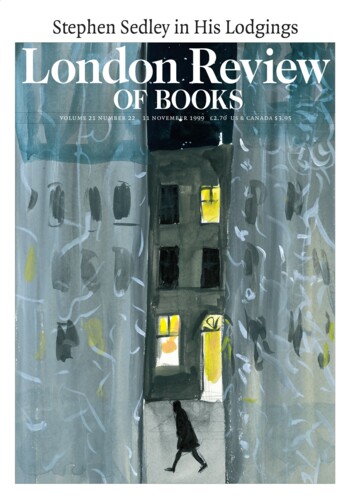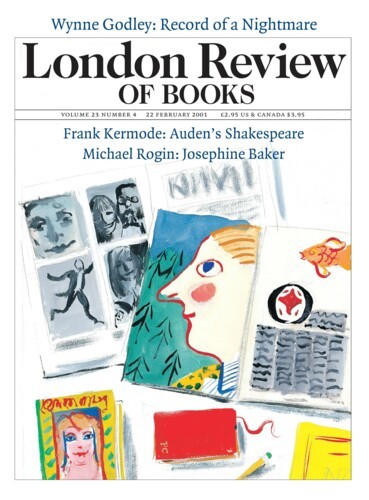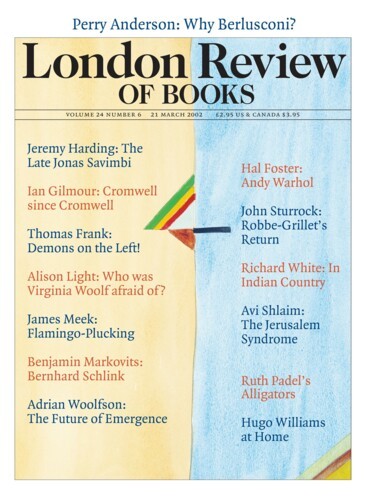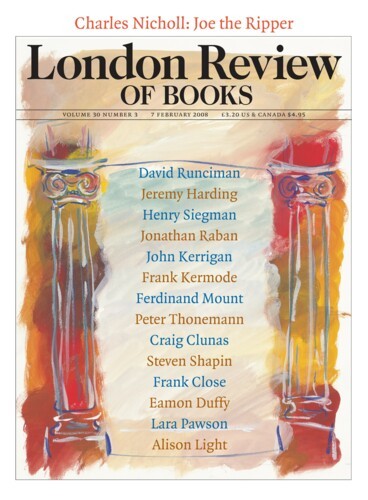Among the Antimacassars
Alison Light, 11 November 1999
According to Baudelaire, fervent lovers and austere scholars have one thing in common, especially in their riper years. They share a love of household cats, who, like them, are ‘sédentaires’ and ‘frileux’ – sensitive to draughts. Baudelaire wrote many hymns to the friend of sensuality and learning, but it was another hundred years before cats reached their current popularity as pets. They have always had their followers but their association with paganism, with heresy and sorcery, made them a constant object of suspicion in Christian Europe. Condemned as the devil’s agents at witchcraft trials, burnt alongside Protestants by Mary Tudor and alongside Catholics by Elizabeth I, roasted at country fairs and persecuted for sport, cats were often given short shrift in Britain. Ancient symbols of fertility, they were commonly deemed lascivious (the female cat was especially lecherous), but feline stand-offishness was the real problem. The cat was of limited worth to humans since it only looked out for itself: ‘a useful but deceitful domestic’ possessed of ‘an innate malice’, as the Encyclopaedia Britannica put it in 1787.’‘





